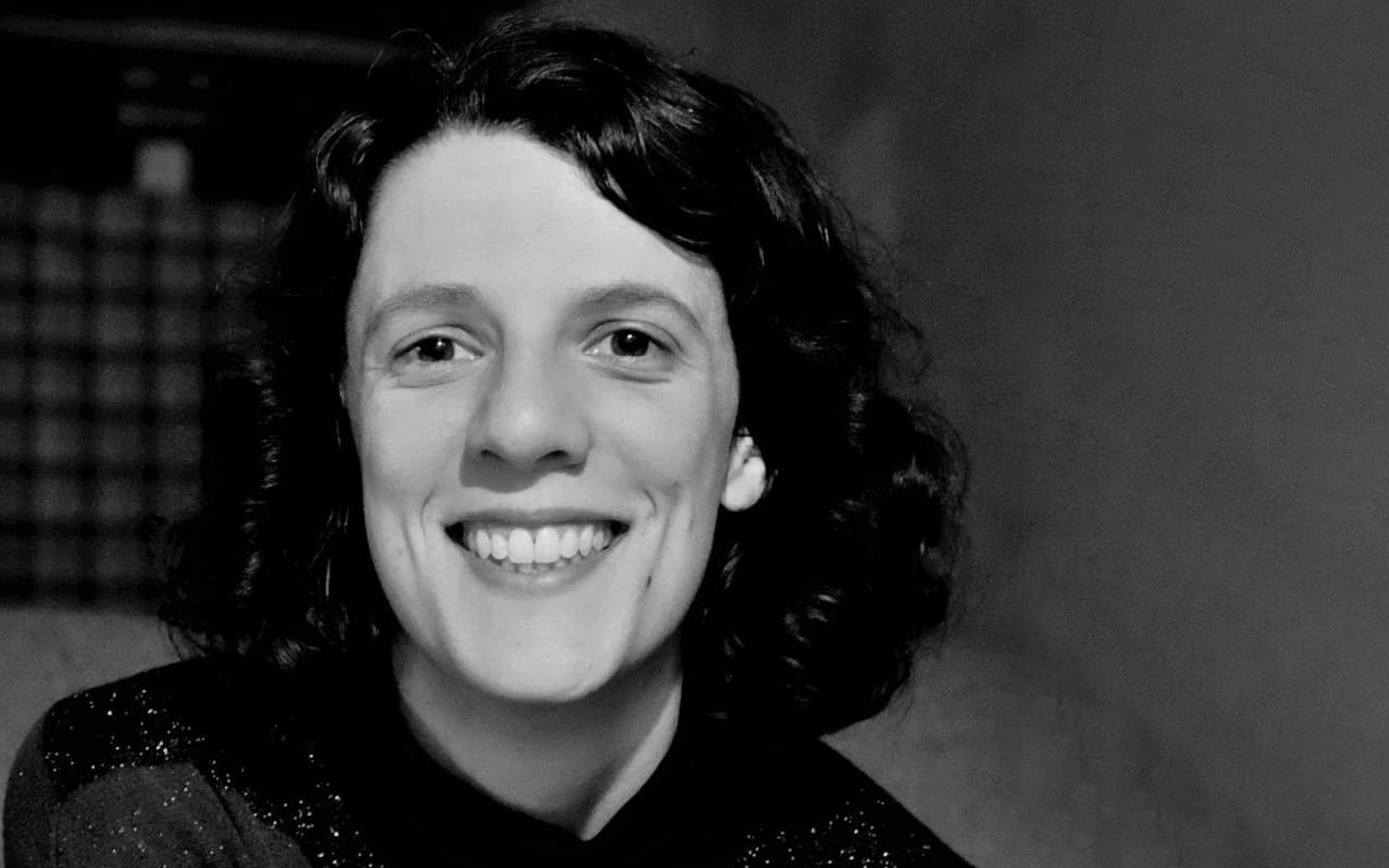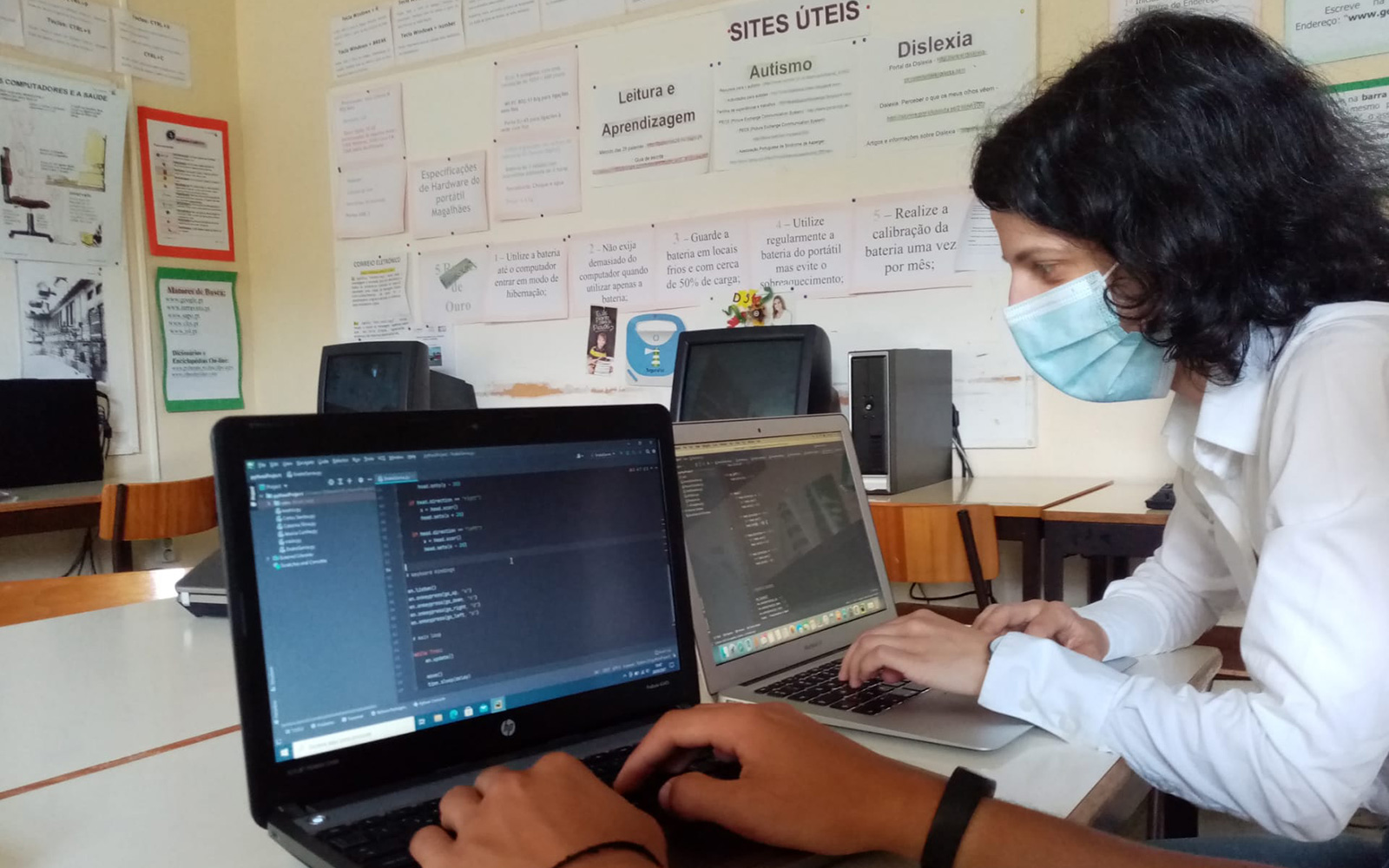Planting the seeds of the future

Ana has a degree in Biochemistry (Universidade de Aveiro) and did her masters in London. She is the founder of Luso Academy, an educational project which develops activities in Luxembourg, Portugal and East Timor and promotes music education. She discovered the GAP project by chance, but when she realized she had the opportunity to go to Trás-os-Montes to help others she did not hesitate.
The mentor of Teach for Portugal (the partner of the Calouste Gulbenkian Foundation for the project GAP – Gulbenkian Aprendizagem) began teaching programming at the school D. Afonso III to youngsters who, for the most part, had never heard of it before. She says there were many difficulties in the beginning because the first classes were held online. “In the beginning, online lessons were a challenge, it’s hard to start from behind a screen. Then when I started teaching in person there was a student who said «oh I never expected you to be so short!». They almost did not know me. I never got to meet or see many of them. And internet coverage is so weak here that I had to ask them to turn off their cameras, otherwise it would be impossible. I never even saw their faces. So teaching in person is very different and very special.”

“The programmers”
For the mentor, programming is not just for improving grades. It is a way to help them with reasoning and logic, both inside and outside the classroom. “The fact that they have to use these formulas, these functions and these equations is extremely important for them, they develop their logical thinking which is going to be important for learning maths but also other subjects. And I feel that.” Ana speaks with enthusiasm. “We’ve already managed to create a group among us, which we call “the programmers”, and here at school we are already “the programmers”. And they have already taught the little ones, for example Artur… they called him the “Professor” [everyone laughs]. This is extremely funny and it is something that we have achieved together. They are also passing on knowledge. It’s more than just using scientific knowledge, it’s about passing on a sense of responsibility, of our responsibility as members of society.”
Erica, David and André are three of the students who were thrilled with programming this year. The interview was conducted via Zoom, but you could tell they were nervous. Erica, who is both smiling and talkative, begins by explaining, “With programming, we can understand much more than what we see. We can understand what is behind the games and other more personal things. And we see that maths is present in everything. I instantly loved what we were doing, and I was curious to move on to in-person classes”. The mentor was surprised with the town of Vinhais and the extraordinary students she discovered in this part of the country. “I thought what I found here didn’t exist anymore. The students are truly kind and so are the teachers. I never experienced any obstacles here.”
Inequalities within the country
However, resources such as internet access is limited on Vinhais and COVID-19 has made the situation worse. Maths teacher Sandra Fonseca explains: “Here, we live in an environment that is already difficult even without the pandemic. In terms of equipment and other things. Now, with the confinement, it is all the more complicated. It was very difficult. It still is. As a maths teacher, I had even more problems because there are things we do in the classroom that we cannot do there. It was very hard for the students but also for me.” The teacher says that everything is more difficult, the fact that students live far from each other, far from school, and that many of them cannot access the virtual world easily, limits them. “A project like this helps them to get away even if just for a while. It is all they have. Their parents only had access to elementary school and many of them (like André, for example), leave school and go help their parents working the fields.”
Ana Correia uses programming to prepare them for maths, but also to prepare them for an unknown future that lies ahead. “My role is to try to explain to 12-year-olds from the countryside that one day a tractor will drive itself. And some of them have already driven one. They work with their family in the fields. The thought of taking that away from them is complicated. In a way, this discipline is like a reality check. This future is near. The future of self-driving cars, the one in which we will need fewer people to work and in which agriculture will become completely independent via artificial intelligence. It is very close. They haven’t realised it yet, and they are far from realising it.”
In the final stage of the project, the mentor feels that somehow her mission has been accomplished. Two of her students were thinking of giving up their studies at the end of 9th grade but decided to pursue programming. “I really like programming and I really want to keep on learning it,” says André.
Far from the large urban centres, Ana methodically and enthusiastically plants the seeds of the future, so that these youngsters can prepare themselves for a new world that is waiting for them just around the corner.
